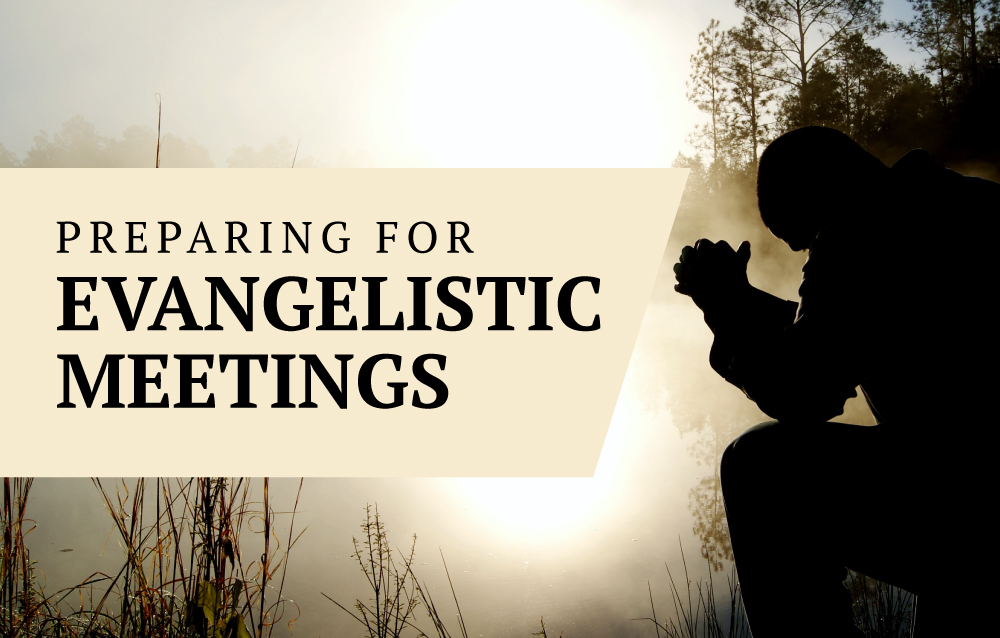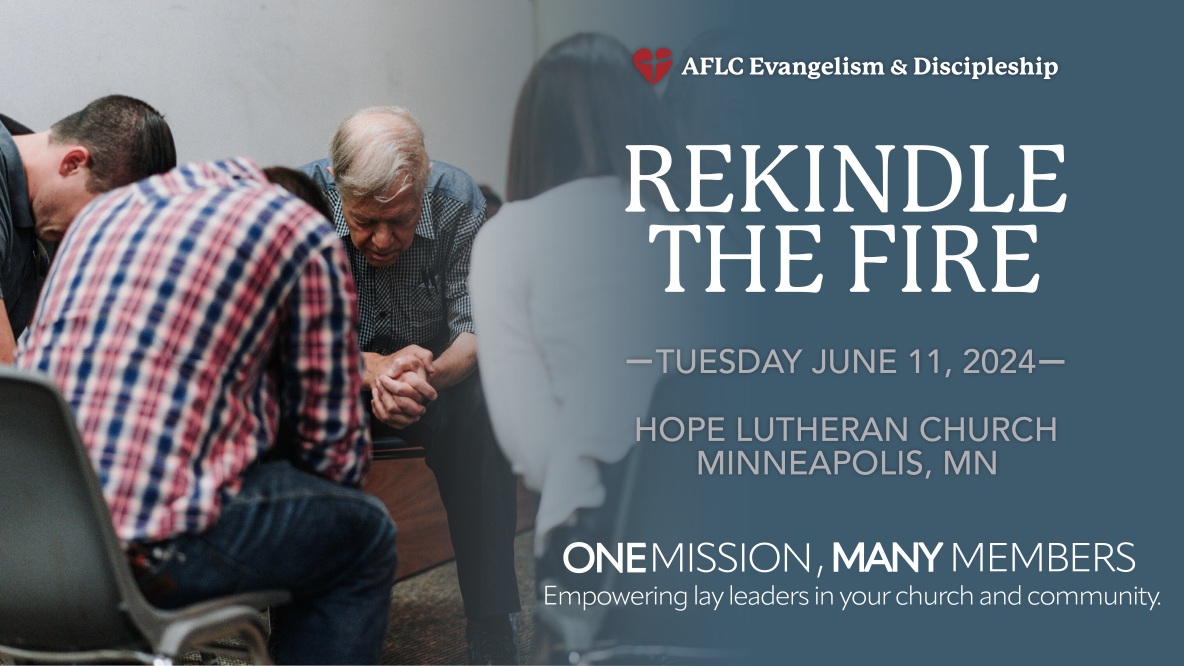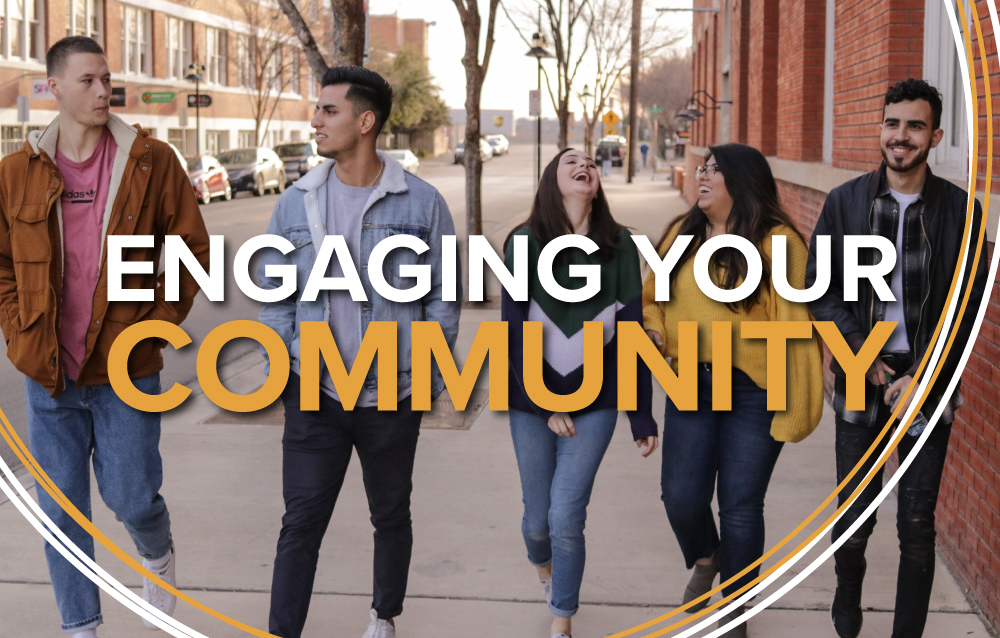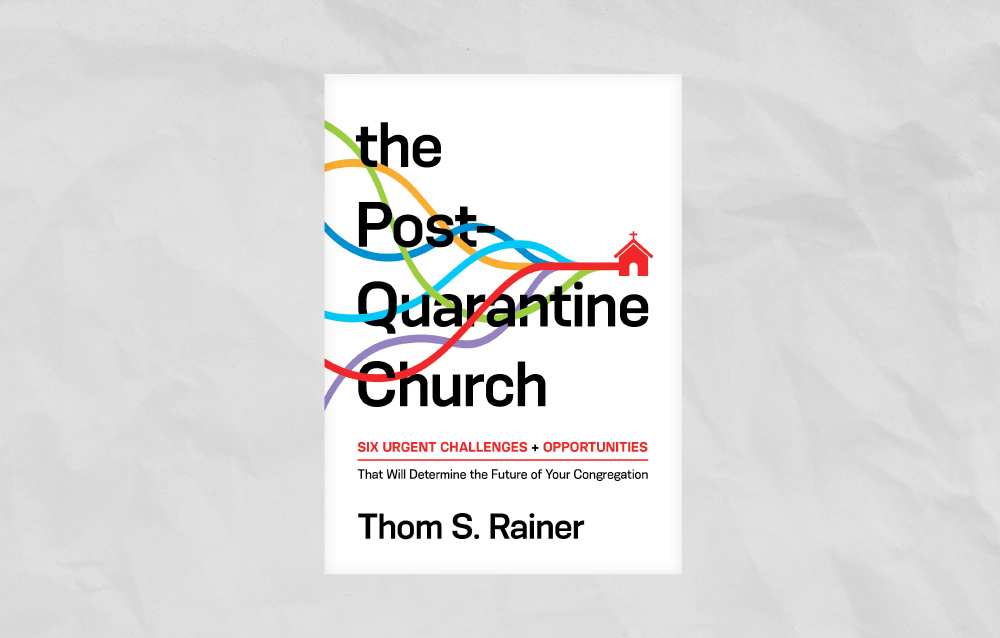
Our AFLC Evangelism Committee recommends the following article, written by Pastor Herb Franz, as a helpful tool in both inspiring the congregation and equipping the leaders for effective evangelism outreaches.
Evangelism Today
Many congregations have at least one week of evangelistic meetings each year. This is an excellent idea, but we must remember, however, that evangelism should be the church’s mission all year. Some churches have a week of special meetings only because it has been a long-standing tradition in their church, and when the week of meetings is over, the people breathe a sigh of relief. God forbid such “evangelism.”
The Church is in constant need of renewal. Dr. George Sweazy said that of every two persons received into the Christian Church through profession of faith, one has dropped out. In many of our Lutheran churches, we could say the same. How many of our confirmands remain true to their vows after confirmation? How many of these young people do we see attending church regularly after they are confirmed? That is why we need an on-going program of evangelism (which includes special evangelistic meetings and Bible conferences each year) in order to reach these people.
The Church of Jesus Christ has been called to evangelize. What is EVANGELISM? It is winning men and women, boys and girls to Jesus Christ. It is reaching out to fallen mankind with the gospel of Christ.
Jesus said in Mark 16:15: “Go ye into alI the world and preach the gospel to every creature.” The Church’s message is summed up in the words of Christ in John 3:16. We need to tell people that God loves them and he desires that they repent of their sins and place their trust in Jesus Christ. Evangelism is to make each person conscious of his own need for a personal decision for Christ. Salvation is a matter of life or death! It is that urgent! Evangelism is therefore so important that it must go on 365 days a year. Unless a church (in sermons and personal visitation and confrontation) is kept continually reminded of the urgent motives for evangelism, it will inevitably drift away from it. Unless the Church is a witnessing, living, caring fellowship in the community, the Church ceases to function as a mission of the Lord.
Why do we need evangelism WITHIN our churches? Are not all the people saved? How many really have the assurance of their salvation? Ask them the question: “If you should die tonight and you should come to the portals of glory and Jesus should ask you, ‘What right do you have to enter into my heaven,’what would you say?” Many people within our churches would not know what to say. Is baptism enough to save? How about the Lord’s Supper? The catechism tells us that the sacraments are only efficacious when they are received with a response or FAITH in the heart. What is faith? “I truly believe in Christ when I heartily accept Christ as my Lord and Savior and trust in Him alone for the forgiveness of sins, life and salvation.” Receiving Jesus Christ is the only way to be saved (John 14:6, John 1:12, I John 5:12). Evangelism presents this truth to people.
Is there any difference in the concept of evangelistic meetings today as compared to years ago? Today there is much evangelism which preaches ‘COMMITMENT WITHOUT REPENTANCE OF SIN, and this produces spiritual “stillbirths.” It’s like placing a bandage on a festering sore instead of taking out the infection, and the last state is worse than the first. Many are offended when a preacher asks for a decision from people brought up in the church, but we are missing the mark if we don’t invite people to come to Christ. When I was a young boy, a peddler lady visited our home and spread out all her merchandise in front of my mother in order to make a sale. Wouldn’t she have been foolish if she had left her sales book in the car and never asked my mother if she wanted to buy anything? The same is true in presenting Jesus Christ to people. We need preaching in our churches today that compels individuals to make a personal decision to repent of their sin and receive Jesus Christ as their own Savior and Lord.
MOTIVES FOR EVANGELISTIC MEETINGS
- MEN AND WOMEN, BOYS AND GIRLS, ARE LOST IN SIN AND NEED A SAVIOR. Our modern society has dropped the word “sin” from its vocabulary. Yet we know that sin is found wherever man is found. Sin reveals itself in man’s frustration, restlessness, hate and worry; man’s drive for materialism and pleasure; man’s disappointment in himself and shame over sinful habits he cannot break. Sin is not only wrong DOING but a wrong inward CONDITION, although each produces the other. The evangelist’s task is to preach the Truth of God’s Word to reveal sin and also to present Christ as the only answer.
- TO REACH THE INDIFFERENT SOULS INSIDE THE CHURCH AS WELL AS OUTSIDE IT. The church is a “hospital for sinners, not a hothouse for saints.” People need to be awakened to the fact that being “religious” or just believing in the existence of God or attending church will not get them to heaven. Receiving Jesus Christ into their lives as their personal Savior is the only way to he saved.
- PEOPLE NEED TO KNOW THAT THEY WERE CREATED FOR CLOSE, DAILY FELLOWSHIP WITH GOD. People are groping for reality, direction, and fulfillment in life. Without Christ as their Savior and Lord, people are missing the greatest good that life can give them. Evangelistic preaching presents Christ as the only One who can fill life’s void.
- FAMILIES NEED TO BE STRAIGHTENED OUT. Many homes are heading for break-up and ruin unless the Lord Jesus Christ is allowed to enter and restore love, understanding and healing.
- TO PREPARE PEOPLE FOR LIVING VICTORIOUSLY AND DYING TRIUMPHANTLY. When a person is ready to die, he is ready to live. History shows that cultures which lose the belief of the immortality of the soul increase in social problems, immorality, and crime. A social gospel without repentance of sin will not change social conditions. When a person has confessed and turned away from his sin and is brought into a right relationship with God through faith in the Lord Jesus Christ, his life will have new meaning and purpose.
- TO STRENGTHEN AND EDIFY THE CHURCH AS WELL AS ITS MEMBERS. Remember this – the church is not a building, it’s people. YOU are the church! The church is only as strong as its individual members. Before a person is saved, the church is a chore and a bore, and he supported the church with leftovers in time, money and talents. As a result of new life in Christ he cherishes the fellowship with other believers, finds worship meaningful, and is strengthened spiritually by personal involvement in its various ministries.
- TO CHALLENGE CHRISTIANS TO FULL SURRENDER IN CHRIST (Rom. 12:1-2) God cannot use a lukewarm Christian; He cannot bless a half-hearted commitment. Willing surrender of all we are and have to the control of Jesus Christ is the necessary step in order to experience His joy, peace, guidance, and power in our lives.
- TO AROUSE THE CHURCH TO ITS RESPONSIBILTY OF BEING A LIGHTHOUSE FOR CHRIST IN THE COMMUNITY. We are not saved to sit, but saved to serve. The world does not need pew-warmers but soul winners! Christ’s command is clear: “Ye shall be my witnesses. Go ye … As my Father hath sent me, even so send I you.” If we do not warn the wicked of their sin, their blood will he required at our hand (Ezekiel 3:18). Every Christian has a work to do. Every church has Christ’s commands to obey. We must pray for Christ’s love for people and a burden for souls that will result in action to get the gospel out in every way we can.
PLANNING FOR AN EVANGELISTIC CRUSADE
- PASTOR Evangelism begins with the pastor. Direction and leadership come from him. The pastor sets the pace. The evangelism effort of a congregation is seldom more alive and aggressive than the concern and effort of the pastor. If he is not committed to evangelism, little preparation and little follow-up will hinder spiritual victories of any kind. It is not meetings that we want, but a meeting with Christ!
- CHURCH COUNCIL In many congregations, the council is the governing body. Together with the pastor, the council should plan their evangelistic thrust about a year in advance so that all organizations of the church will be alerted to the special meetings and gear their programs accordingly. Nothing else should be scheduled during the week of special meetings. If those on the church council are dedicated, prayerful and enthusiastic, this spirit will spread to the rest of the church. Many times the council will develop an evangelism calendar which will define the time for each activity involved with the crusade, such as: date to begin praying for the crusade; date when the first publicity goes out to the congregation and community; date when the first visitation of the community begins; date when counseling classes begin; and the date of follow-up.
- EVANGELISM COMMITTEE Often the Board of Deacons serves in this way, or else this committee can be elected or appointed. In selecting such a committee, it is imperative that these people are 100 % in support of evangelism. It is not committees we need, but people who love the Lord and want to see souls saved.
This committee together with the church council and pastor, should be in agreement concerning the person desired to be the evangelist for their week of special meetings. Prayer should be made before the call is sent to the man you desire. If God is not in the call, then all efforts will be in vain. Certain questions should be asked before you consider calling a man to be your special speaker: Is he a man of God? Is he bold to speak out against sin? Does he call for repentance of sin as the most important step to salvation? Does he preach for personal decision (that individuals respond to God’s call)? Does he emphasize a personal faith in and a relationship with Jesus Christ? Does he stress sanctification and holiness of life?
There is too much shallow evangelism today. People are asked to make a commitment to Christ without first of all dealing with their sin. This results in many spiritual “still births.” Let us also seek a man who is not one to “Pick raw fruit” by pressuring people to come to Christ by man-made manipulation instead of being drawn by the Holy Spirit. The Evangelism Committee should meet with the evangelist and go over methods used in the local church as far as altar calls are concerned. An evangelist is not to use tactless methods which would destroy all of the work done for the crusade.
Each of the members in the Evangelism Committee could be assigned to serve as chairmen of the various crusade committees: prayer, counseling, visitation, follow-up, publicity, music, and finance. These people will work together with the church boards, choirs, etc., in the preparation. This committee should enthuse every organization in the church about the crusade. They should endeavor to involve every group in the overall program of evangelism and make sure that all members of the organizations will be personally invited to attend the meetings.
PRAYER
REASONS FOR PRAYER
Prayer is the secret of any successful evangelism crusade. There is no power in the pulpit if there is no prayer in the pew. God’s alternatives are very clear: Either we pray or we faint (Luke 18:1); either we seek God’s face and are forgiven and healed, or else we turn aside from Him, only to be cast out
(II Chronicles 7: 14-22). Paul often pleaded with Christians to pray for him (Ephesians 6: 19;
II Thessalonians 3: l, for example).
Without prayer and intercession, and without the Spirit of prayer moving mightily in the hearts of people to set them aflame with compassion and concern, evangelistic meetings can easily become form and a humanistic endeavor. As such, they will be an abomination in the sight of God and will be very dangerous and devastating for the church. We need to realize that effectual prayer is not so much self-assertion but SELF-SURRENDER to the Lord to whom we are praying. The Holy Spirit’s power comes to those who are concerned enough not only to pray but are also willing to obey. There is no greater power source open to Christians than prayer.
REQUESTS IN PRAYER
- In FAITH with THANKSGIVING, we should pray about every detail of our personal and congregational life. We must expect God to answer our prayers (Mark 11:24).
- FOR THE SALVATION OF SOULS. We read in I John 5:14: “This is the confidence that we have in him, that if we ask anything according to His will, He heareth us.” Peter writes in II Peter 3:9: “The Lord is not slack concerning His promises as some men count slackness; but is longsuffering toward us, not willing that any should perish but that all should come to repentance.” Therefore, when we pray for the salvation of souls, we can be sure that we are praying in God’s will.
- FOR GOD TO BE GLORIFIED (John 14:13). When we keep this in mind, God will win the lost and He will be glorified in the fruit He wins.
- FOR REVIVAL! Pray for deep conviction of sin and a spirit of repentance in every life. The evangelization of those outside the church cannot be separated from the rekindling of devotion of the Christians within it. Pray for love and unity in the body of Christ.
- FOR CHRISTIANS to be surrendered to the Lord, bold in witnessing, faithful in service, and motivated by love for Christ and concern for souls.
- FOR SATAN TO BE BOUND (Mark 3:27). First must come submission to the authority of Christ (James 4:7), protection by the blood of Jesus (Revelation 12: 11), and praying in the name of Jesus Christ God’s incarnate Son (I John 4:1-4, John 14:14).
- FOR THE EVANGELIST to be inspired in his preparation and study of the Word and to be empowered by the Holy Spirit in preaching the Truth of God’s Word.
- FOR YOUR CONGREGATION AND PASTOR, workers, organizations and activities.
If we pray with a humble, penitent heart in Jesus’s Name, we can expect God to answer our prayers and work in a mighty way.
PARTICIPANTS IN PRAYER
Everyone should be encouraged to pray — not a certain group but the entire church, both the young and the old. Praying hearts are more receptive to God’s Word. There is great power in united prayer.
First, we need to pray ALONE (Matthew 6:6). We need to pray for ourselves before we can pray for others. Unconfessed sin will block our prayers (Psalm 66:18). We need to make things right in our lives before we can expect God to answer our prayers and make things right in someone else’s life.
Then we need to pray as FAMILIES (Joshua 24:14-25, Psalms 127: I ). Families of the church need to get under the burden of prayer for the crusade. A wonderful time to remember the crusade is during family devotions. Have a different member of the family pray for the crusade each day.
We need to pray as a CHURCH for the meetings (Acts 12:5). We read in Acts 2:41-47 that the early church was a praying fellowship of believers, and as a result, souls were saved continuously. We can expect the same results if we pray as a church for “Jesus Christ is the same, yesterday, today and forever.”
Perhaps several weeks before the crusade, a few minutes of every service can be set aside for special prayer for the meetings – times of silent prayer as well as having various leaders take turns in leading the congregation in united prayer.
It is important that we involve every organization in the church to get under the burden of prayer; our youth groups, women’s organizations, men’s groups, Sunday School classes, as well as cottage prayer meetings in the homes and 24-hour prayer vigils. We all need to pray!
METHODS OF PRAYER PREPARATION
COTTAGE PRAYER MEETINGS should be held at least once a month for perhaps three or four months before the meetings are held. The Prayer Committee chairman should be in charge of organizing them, working together with the pastor. This will involve contacting several homes (perhaps four to eight different locations) each time where the people of the congregation divide up in small groups for Bible study, informal sharing and prayer. Perhaps different homes can be selected each month. The homes can be listed in the bulletin. All ages should be encouraged to participate. Phone calls can be used to involve more people. The responsibility of leading these meetings may either be assigned to the deacons of your church or the hosts of each home if they desire. A certain portion of Scripture may be assigned for study, or else a Bible study can be prepared ahead of time by the pastor or other leader, and worksheets printed (a sample is enclosed). The leaders should receive them at least a week early so they can study them. At the cottage meetings, they can distribute these sheets to all who attend.
These home fellowship meetings can be a tremendous blessing in bringing families closer together and helping the people of the congregation to open up to one another – sharing lessons from God’s Word as well as personal needs, prayer requests and answers.
PRAYER REMINDERS may be printed cards or small sheets of paper (sample enclosed) which can be inserted in the bulletin a month before the meetings. Your people should take them home and stand them on the kitchen table, nightstand, desk, or another place in order to remind them to pray.
A 24-HOUR VIGIL should be scheduled the same week as the meetings begin, perhaps one or two days before the crusade. Post a sheet on the church bulletin board (or pass one around before a Bible study) listing the times in which Christians are encouraged to sign up for one hour which they will spend in meditation and prayer especially for the evangelistic meetings. They can pray either in church or at home, depending on the arrangement set up in your congregation. (If the church is left open all night, encourage the men of your congregation to take the late night hour; otherwise those praying at night can pray at home.) Seek to have at least one person praying each hour so that the vigil will not be broken. (If you feel it would be too difficult to have a 24-hour vigiI, a 12-hour one will be effective, too.) It is good to have a prayer request statement typed up in advance (preferably as a bulletin insert or distributed the Sunday before the vigil) which lists various prayer requests and needs (a sample is enclosed).
Your congregation will be sure to see the effects of such concentrated prayer.
COMMITTEE PREPARATION FOR THE CRUSADE
PUBLICITY
Select people who are good in this area. Newspaper articles plus radio and television ads are very effective in notifying the community of the meetings and inviting the public to come. It is good to inform the entire membership of your congregation to the meetings — either by letter, telephone calls, or house-to-house visitation. Often times a face-to-face invitation to the meetings impresses many people with the urgency and the importance of the crusade. Visitation teams of two or three people can be assigned to cover various areas of the community to reach unchurched people as well as the indifferent church members. The youth can be involved by making and/or distributing posters around your community; to other churches (when permission is granted) on community billboards, in stores, laundromats, etc. Print up interesting brochures which can be passed out to the neighborhood. Many people in your congregation can be actively involved in the publicity for the crusade, thus not only reaching out to others but also building their own excitement for the meetings.
Sunday services can also be used as a time of informing the congregation about the crusade, preparations, etc. Have one of the members of the various committees give a five-minute presentation on what their specific committee is doing in this evangelism effort.
Publicity is important. There is nothing more frustrating to an evangelist than to come to a church for a week of evangelistic meetings and then to find that only Christians are in the church because the lost have never been invited to come.
Counseling
Because we have prayed. We must expect the Holy Spirit to be moving in hearts, so there will be people seeking help after the evening services. Training classes for counselors should be held for several weeks prior to the crusade. Five to ten hours on soul winning should be a “must” for every counselor. Pastor A.W. Knock has a very good book called PERSONAL EVANGELISM and a small booklet, WINSOME SOUL WINNING, which could be used for this training.
The counseling chairman should also be responsible for ordering counseling materials to be available during the meetings, such as tracts explaining the way of salvation, perhaps “FOUR SPIRITUAL LAWS” (Campus Crusade for Christ) or Nels Pederson’ s tract “NEW LIFE NOW” (Lutheran Colportage). It is important that the counselors are familiar with these materials before the crusade begins. Counselors should be praying committed Christians with a real love for souls, a basic knowledge of the Bible, and a humble, willing spirit to serve the Lord and others.
Follow-Up
This committee has a very important task, because salvation of souls is only the beginning. New Christians must be established in their faith and encouraged in daily personal Bible study and prayer. There are many good follow-up materials available. One suggestion is the Billy Graham 4-part series which begins with the booklet, KNOWING CHRIST. (These should be given to the new Christians right at the crusade. They are to complete these lessons, then send them to the Billy Graham Association in order to receive the next booklet.)
This committee can be the same as the counseling committee. The same qualifications and training are important for both. Each member of this committee could be assigned one or two person who made commitments to the Lord during the crusade. Follow-up can be done by phone calls, personal visits, as well as prayer and Bible study times together at least once a week. They should pray for these people, encourage them, and help them until the new Christians are able to stand spiritually indoctrinated in the truths of God’s Word. New converts should be encouraged but not pushed into Bible study groups in the church. Working together with the pastor, all who are involved in this important phase of the ministry are sure to be strengthened and blessed
The Youth
The Parish Education Board is often in charge of the youth in many churches. Every congregation should have men and women who are earnestly interested in the youth and willing to spend time with them as youth advisors. Encouragement is needed to get the teens as well as young married couples with children out to the services each evening. Confirmation classes can be required to attend each session and take notes on the messages. Schedule the youth choirs to sing, have a youth fellowship supper before one service, and perhaps designate one evening as youth night. Involve the youth as much as possible.
Finances
It is a good idea to set a budget for the evangelism crusade. The Board of Trustees often takes care of this. The budget should include the amount of money you plan to spend on advertising, literature, music, the evangelist’s travel expense plus his meals, lodging and honorarium. They could also set a love offering for the AFLC’s Evangelism Department.
Arrangements
This committee is responsible for making all of the arrangements for the evangelist during his stay in the community. That includes housing, meals, transportation (plane, bus, or mileage to come and to return home), etc. Sometimes it may be an aid to the evangelist to stay in a motel in order to give him ample time for rest, meditation, and prayer. It’s also a blessing to the people of a congregation to have fellowship with the evangelist in their homes. It is best not to arrange two large meals a day for the speaker. This committee should also be responsible to have the ladies serve lunch one of the nights (preferable not the last night); arrange for a nursery for children each night and provide transportation for those who cannot drive.
MUSIC
It may be helpful to set up a music committee to plan the special music for the meetings. Involve your own members as much as possible. Use choirs often in order to allow more people to participate. Congregational singing is also important and can be an effective tool to prepare the hearts of the people to hear the Word. A good song leader is a real asset, and an uplifting theme song can be an added blessing.
However, the preliminaries before the message should last no longer than half an hour and should be such that it will set the tone for the preaching. The evangelist should be given ample time for sharing the Word. The services should last no longer than one hour and thirty minutes if at all possible. When you keep the service moving, you will also keep the worshipers in a state of expectancy. Dragging out the service can hinder the work of the Holy Spirit in hearts.
USHERING
Billy Graham shares the following about the importance of these men: “The effectiveness of a sermon and worshipful setting of a service is strengthened by consecrated ushers. Their work is more than merely finding a seat for the worshipers and receiving an offering. They are actually hosts in the house of God. Whether ushers serve in a gymnasium or a church, it is they who make the first impression upon people. The friendly handclasp and contagious smile of or an usher can help pave the way for the evangelist who proclaims the Word of the Lord. An usher’s thoughtful attention to the mother with small children, to the blind, the deaf, the aged, the stranger, the timid heart, can help make these hearts receptive to the gospel. An unfriendly or cold usher can dampen the spirit and cause people to lose the message. So we should call out from our churches, men who have compassionate hearts and can quickly detect the hidden hurt of the multitudes.
REMEMBER …..
It is not meetings that we need in our churches, but a meeting with God! Evangelism is the church’s task, not one week a year but continually. We want all services to be “times of refreshing in the presence of the Lord.” May He bless your ongoing evangelistic outreach. May Christ be lifted up, for then He will draw all men unto Himself.
Cottage Prayer Meeting – SAMPLE
Talk about this:
- What is the greatest need in our church right now?
- What results do you want to see from our coming crusade?
- What can each of us personally do to reach these goals for our church?’
Read II Chronicles 7:14. What prerequisites are necessary before revival and healing can take place?
1.
2.
3
4.
Explain how each of these is accomplished in our lives.
Turn to II Chronicles 30. Just as we are doing in our congregation, a special time was called to bring people together to the house of God.
- (vs. 8) List four things necessary in our lives before we can expect God’s blessing (notice the order).
- (vs. 9) What promise does God give to those who return unto Him?
- (vs. 10 ) How can we expect some unsaved people to respond to our desire to obey God? How should we treat them ?
- (vs. 12) Through what means does God work His way in our heart? — rooted, grounded and centered in the _________. (How do we build it into our lives (mind, will, emotions, speech, actions)?
- (vs. 17) What hinders God from working in a congregation? Can this include Christians? “Sanctify” means (1) to set apart; (2) to make holy, purify. How are we sanctified for the Lord’s service? (Think about what needs to be sanctified in your life. Talk to the Lord about it when you get home and are alone with Him.)
- (vs. 18) What example does Hezekiah give us?
List the names of five people whom you will daily pray for and also will invite to our crusade. - (vs. 19 ) Whom does the Lord pardon?
How can we personally fulfill that qualification? - (vs. 20) What does God delight to do for those who do these things?
- (vs. 21) List at least four results of revival.
- (vs.22) Referring also to Jeremiah 15:16. What should be our daily feast and worship?
- (vs. 23) PRAISE THE LORD, it spreads and keeps growing? What can we do to make that true in our communities?
Lets earnestly beseech the Lord and plead for this to happen in our midst. Remember, revival in a church can be only as deep as the revival in individual hearts. May each of us personally take these admonitions to heart so that we can be in that place where God can bless and heal us.
Begin prayer time with a couple minutes of silent confession to God personally. Then: Pray especially for your evangelistic crusade, speaker, committees, open hearts, revival, etc. Also Remember your pastor, church, our nation, special requests.
Prayer Vigil — SAMPLE
Verses for meditation: Psalm 66: 18. Psalm 51. Luke 18:9-14, James 5: I6, John 15: 1-8
- Begin by confessing to God all known sin in your life. Ask for His forgiveness and for cleansing of ALL your sin by the blood or Christ. Pray that He would give you daily victory over temptation and sin by giving you strength to daily (1) reckon yourself to be dead to sin and (2) alive to God through Christ (Romans 6: 11 ). Then THANK Him as a sign or your faith in His forgiveness and power.
- Admit your dependence upon Him, and pray for a greater faith and total surrender to His control. Ask Him for a greater hunger for His Word and for wisdom to understand it and power to apply it to your daily life. Seek His will for your life, and thank Him for all His blessings to you. Pray that He will give you boldness in witnessing, a burden for souls, and that you may be filled with His love.
- Pray for your evangelistic services. Pray that God will inspire and strengthen the evangelist as he prepares, that the Holy Spirit will lead him in what to share, as well as empower him in his preaching. Pray for all who will have a part in the services: musicians, counselors, planning committees, kitchen workers, ushers, etc. Pray for penitent hearts, deep conviction of sin, and deep faith in the Lord Jesus Christ. Pray for many to attend, and that each one who comes will be challenged to a deeper commitment to Jesus Christ and dedicated service for him.
- Pray for your church. Remember your pastor, deacons and trustees, Sunday School Superintendents and teachers and students, ladies groups, men’s groups, young people, Bible study groups, choirs, all workers, etc. Pray for unity and love among all, a willingness to serve add help one another, a deepening of spiritual life, guidance and discernment. Remember your missionaries and Christian workers.
- Pray for your homes and families. Remember especially those with special problems. Pray that fathers will take their role as spiritual leaders of their homes. Pray that wives and mothers will have joy, fulfillment, and wisdom in faithfully meeting the spiritual and physicaI needs of their families. Pray that children will be strong against the pressures of the world and also that they willingly will obey and love and honor their parents and each other. Pray that every home will have a family altar daily when they read God’s Word and pray together.
- Pray for teenagers. Earnestly pray that they would be strong to stand against, all the pressures and temptations of the world. Ask God to give them a strong desire to follow the Lord and set high goals for their lives. Pray about the specific problems they face daily — with friends, in school, at home, as well as their own inward struggles. Pray that Christian teens will be bold in standing up for their convictions and telling others about Christ.
- Pray for your elderly people. Ask God how you and your congregation can better help and encourage them. Ask God to give them strength and faith and comfort, as well as provide for their needs. Request God’s grace on behalf of the sick and shut-in.
- Pray for REVIVAL! Ask God to begin that renewing in your own heart. Pray for a church reborn and reawakened by the power or the Holy Spirit so that this may he our finest hour of Christian service and sharing in our community and world.
- Pray for the unsaved. Tell God by name those individuals you are concerned about — whether it be a neighbor, friend, acquaintance or family member. Pray that the Holy Spirit will convict them of sin in such a way that they will turn away from it and in faith invite Christ into their hearts to be their Savior and Lord. Then ask God to give them assurance of eternal life through His Word.
- Pray for Christians. Mention them by name to the Lord as they come to mind. Pray Scripture for them, including Christ’s love, spiritual discernment, victory over temptation, greater hunger for God’s Word, boldness in witness, etc.
- Pray for America — its leaders, laws, churches, media, schools, homes, prisons, etc.











Thank you for your feedback!
Please enter your comments below